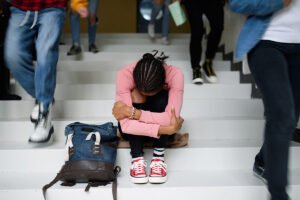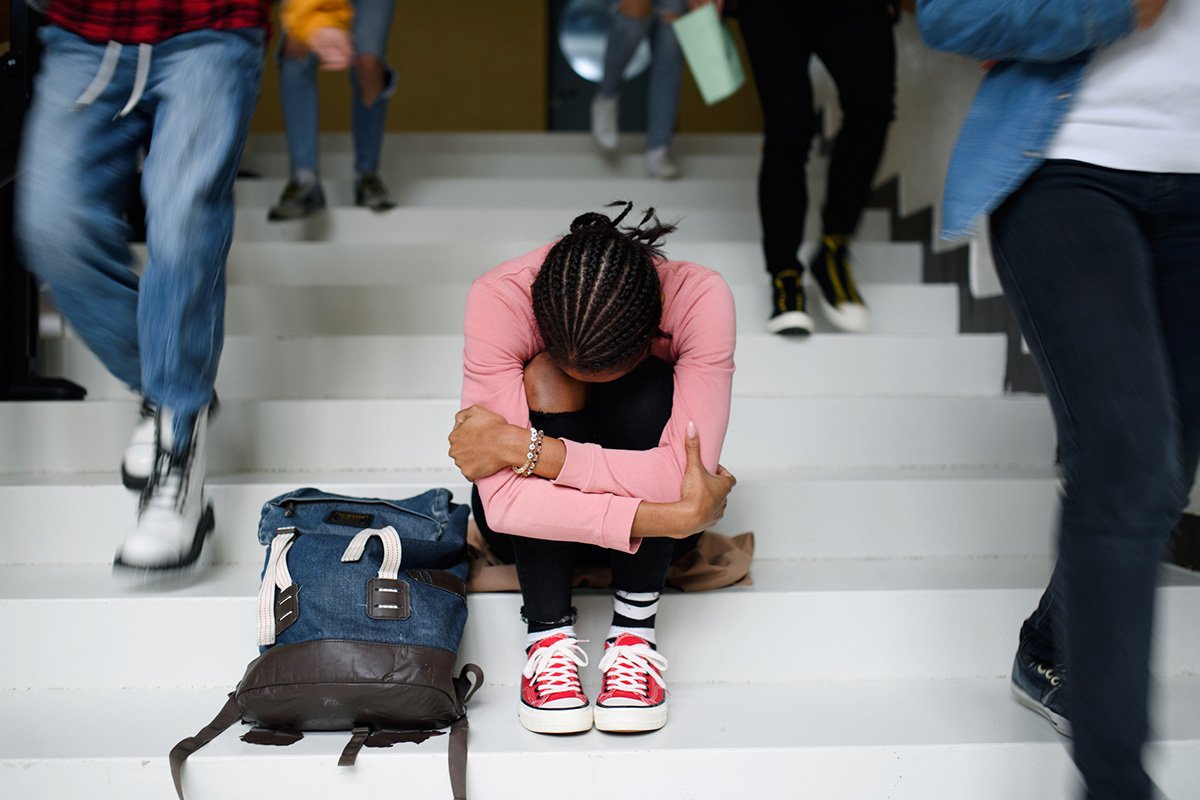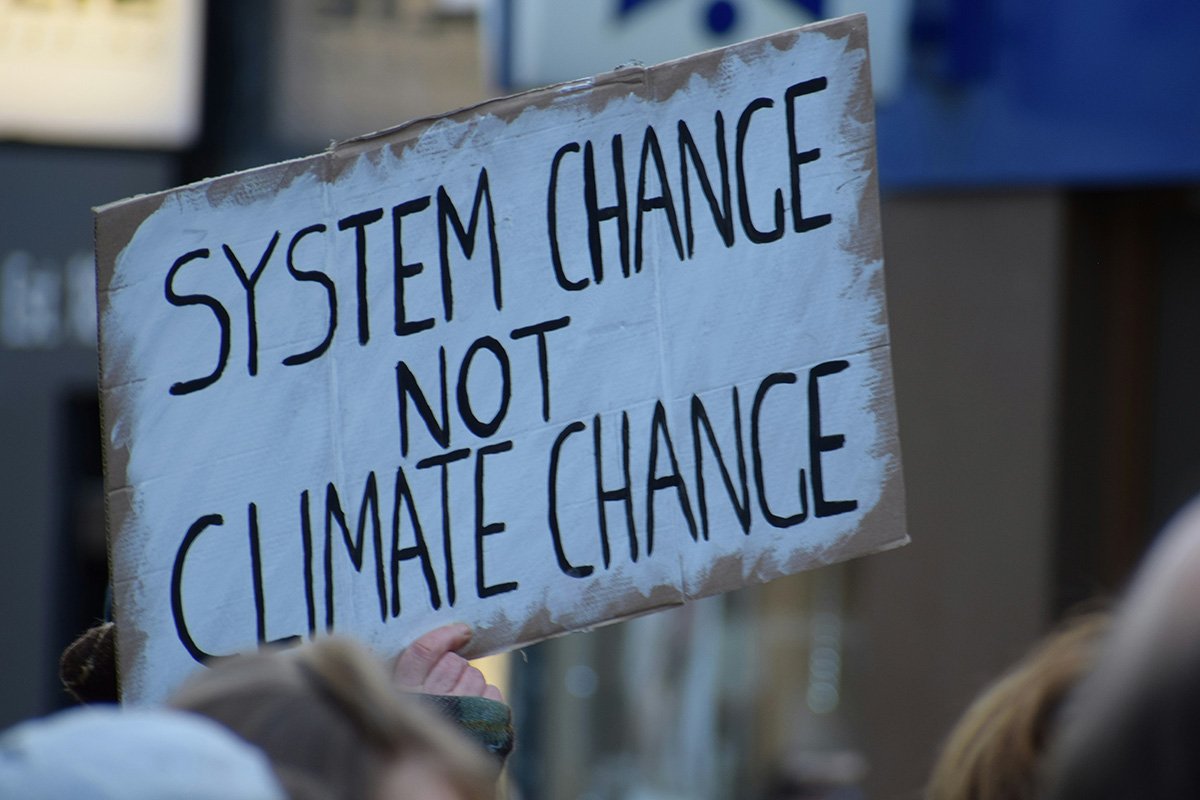
Loneliness is “the most human of feelings,” Jeremy Nobel, faculty at the Harvard Chan School of Public Health and Harvard Medical School, said on the podcast Harvard Thinking.
When people’s need for social connection isn’t met, that feeling can turn serious, with potentially devastating consequences for their emotional and physical health as they spiral into isolation. According to Nobel, “The spiral is what takes people to the excessive levels of loneliness.”
During the first part of the pandemic, when people were urged—and in many places around the globe, ordered—to self-isolate in order to curb the spread of COVID, loneliness reached all-time highs. But there’s no vaccine for loneliness, and four years on, the feeling continues to surge.
Loneliness has now reached epidemic status, according to the US Surgeon General. What’s behind the lack of connection many people persistently experience—and could aspects of our rapidly changing climate be making it worse?
Climate Feelings and Severe Weather Events
High temperatures make loneliness worse—and loneliness makes heat worse.
As the Canadian Medical Association Journal wrote in 2021, “Studies have linked the consumption of bad news to increased distress, anxiety and depression, even when the news in question is relatively mundane.” In recent years, however, bad news across the globe has been anything but mundane—from escalating military conflict to famine to the ever-worsening impacts of climate change.
It’s this last type of bad news that is affecting people so severely that researchers have coined new terms to describe it. NPQ has written about “climate fatigue,” a weariness specifically related to exhaustion from the climate crisis. This feeling of overwhelm is especially troubling as it contributes to inaction.
As NPQ reported, “Another name for climate fatigue is apocalypse fatigue, based on the idea that much of our global coverage about the environment is dismal, dystopian, and inevitable: that we are destined to fail.” But thanks to the tireless work of activists, youth, scientists, funders, and others who care about the planet, we are not necessarily doomed. But climate fatigue—along with climate anxiety and eco-grief—can contribute to spiraling mental health, regardless of what’s actually happening.
Along with feelings about climate change eroding mental health, climate events can contribute to loneliness. Severe weather events, from torrential rains to severe snowstorms to intense heat, force people indoors, away from their communities, and cut off from potential social interactions. How many community events have been canceled in the last few years due to unprecedented weather? How many seasonal celebrations were deferred, and social connections interrupted or never even made?
Heat, specifically, can create a vicious circle when it comes to loneliness: high temperatures make loneliness worse—and loneliness makes heat worse for many. As Grist reported, “In the U.S. and many other countries, social isolation is a major risk factor for dying during a heat wave.” Adults who live alone and have no one to check on them suffer during every heat wave. This risk is compounded “by a shortage of social infrastructure like libraries, local businesses, green spaces, and public transit, leaving people who are older and live in disinvested neighborhoods most at risk from extreme heat.”
“We talk a lot about the emerging climate crisis, but far less about the social infrastructure crisis,” Eric Klinenberg, a sociology professor at New York University, said to Grist. Those most impacted by a lack of or failing infrastructure, including the elderly and people living in poverty, are at high risk for loneliness. But according to the US Surgeon General, some of the highest rates of loneliness, which impacts about half of all people living in the country, are actually reported by young adults.
Sign up for our free newsletters
Subscribe to NPQ's newsletters to have our top stories delivered directly to your inbox.
By signing up, you agree to our privacy policy and terms of use, and to receive messages from NPQ and our partners.
“Traditional community-builders like churches, service clubs and unions have all seen their attendance plummet in recent years.”
Nonprofits and Policy Addressing Loneliness
For young people aged 18 to 24, “time spent in-person with friends has reduced by nearly 70% over the past two decades,” according to the US Surgeon General’s special report, Our Epidemic of Loneliness and Isolation, published in 2023. The report listed recommendations across the board from what healthcare professionals to communities can do to combat loneliness, including recommendations for philanthropy. The report advises funding programs that advance social connections, including cross-sector programs supporting relationship building.
One such group can be found in Vermont, where Social Tinkering hosts communal events designed to tackle social isolation. The nonprofit sponsors monthly and annual meetups with free food, snacks, and games. Future plans for the nonprofit include creating a Community Living Room, a space where members of the Rutland, VT, community can stop by, hang out, see friends, and make new ones.
NPR reported on one of the group’s meetups in March, where “about a dozen people braved icy roads on a recent Wednesday night.” Awaiting them was hot chocolate, tea, food, and connections. According to NPR, “Social interactions make us feel good and improve our mental health, while isolation increases our risk of anxiety, depression, heart disease and dementia. Traditional community-builders like churches, service clubs and unions have all seen their attendance plummet in recent years.”
“It made a world of difference in my life, and I thrived. And the people in that group thrived.”
But compounding the impediments of weather and costs, “Many social organizations don’t include kids or have other barriers that limit who can take part.” Importantly, the programs of Social Tinkering welcome people of all ages, including children. As the nonprofit’s website states, “Justice, equity, diversity, and inclusion are woven throughout our work as we strive to cultivate belonging for all people to feel seen, valued, and supported.”
On the policy side, in late 2023, US Senators Chris Murphy (D-CT) and Bob Casey (D-PA) introduced legislation to establish a grant and training program for community organizations to address social isolation. Called the Addressing Social Isolation and Loneliness in Older Adults (SILO) Act, the legislation is focused on older adults and adults with disabilities. Both groups face an increased risk of loneliness.
The act would provide $62.5 million in annual funding and comes on the heels of the National Strategy for Social Connection Act, introduced by Murphy earlier in the year. That act would provide funding for the Centers for Disease Control and Prevention to further study the loneliness epidemic and also calls for the creation of a White House Office of Social Connection Policy. This proposed office would work with federal agencies to create strategies for improved social infrastructure, and also establish national social connection guidelines along the lines of sleep and nutrition guidelines already in place.
As Vermonter Jeanette Langston told NPR about the Social Tinkering meetup: “It made a world of difference in my life, and I thrived. And the people in that group thrived….I watched every one of us affect each other in these really cool ways.”










